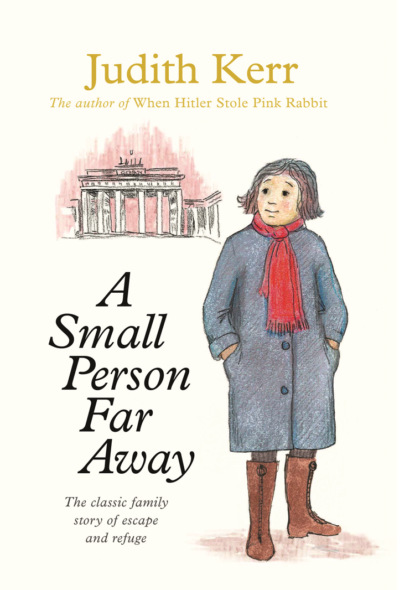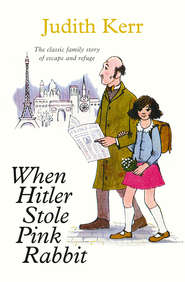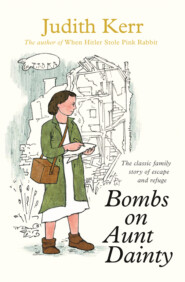По всем вопросам обращайтесь на: info@litportal.ru
(©) 2003-2024.
✖
A Small Person Far Away
Настройки чтения
Размер шрифта
Высота строк
Поля
“How do you mean?”
“Perhaps…” he said, “perhaps it was really what she wanted. She’d said again and again that she was tired. I don’t know – I still don’t know if what I did was right. But I thought of you and Max, and I felt I couldn’t take the responsibility.”
When she could eat no more, he stood up.
‘Come along,” he said. “We’ll go and see your mother. Try not to let it distress you too much.”
The hospital was a pleasant, old-fashioned building set in a wooded park. But even as they approached the front door, past a man raking leaves and another shovelling them into a wheelbarrow, her stomach tightened on the lunch she had not wished to eat, so that for a moment she was afraid she might be sick.
Inside the hall, a very clean nurse in a starched apron received them. She had a tight expression and seemed to disapprove of them both, as though she blamed them for what had happened to Mama.
“Follow me please,” she said in German.
They went, Anna first with Konrad behind her. It was more like a nursing home than a hospital – wood panelled walls and carpets instead of tiles and lino. It’s more like a nursing home than a hospital, she said to herself, so as not to think about what she was going to see. Corridors, stairs, more corridors, then a large landing crowded with cupboards and hospital equipment. Suddenly the nurse stopped and pointed, and there, behind a piece of dust-sheeted machinery, was a bed. There was someone in it, motionless. Why was Mama not in her room? Why had they put her here, on this landing?
“What’s happened?” she shouted so loudly that she frightened all three of them.
“It’s all right,” said Konrad, and the nurse explained in disapproving tones that nothing had happened: since Mama had to be under constant observation, this was the best place for her. Doctors and nurses crossed the landing every few minutes and were able to keep an eye on her.
“She’s being very well looked after,” said Konrad, and they went over to the bed and looked at Mama.
You could not see very much of her. Just her face and one arm. All the rest was covered with bedclothes. The face was very pale. The eyes were closed – not just closed normally but closed tight, as though Mama were keeping them shut on purpose. There was something sticking out of her mouth, and Anna saw that it was the end of a tube through which Mama’s breath came thinly and irregularly. Another tube led to the arm from a bottle suspended from a stand near the bed.
“There doesn’t seem to be any change,” said Konrad.
“It is necessary to bring her out of the coma,” said the nurse. “For this we must call her by her name.” She leaned over the bed and did so. Nothing at all happened. She shrugged her shoulders. “Na,” she said, “a familiar voice is always better. Perhaps if you speak to her she will hear.”
Anna looked down at Mama and the tubes.
“In English or in German?” she asked, and immediately wondered how she could have said anything so stupid.
“That you must decide for yourself,” said the nurse. She nodded stiffly and disappeared among the dust-sheeted equipment.
Anna looked at Konrad.
“Try,” he said. “One doesn’t know. It may do some good.” He stood looking at Mama for a moment. “I’ll wait for you downstairs.”
Anna was left alone with Mama. It seemed quite mad to try and talk to her.
“Mama,” she said tentatively in English. “It’s me, Anna.”
There was no response. Mama just lay there with the tube in her mouth and her eyes tightly shut.
“Mama,” she said more loudly. “Mama!”
She felt oddly self-conscious. As though that mattered at a time like this, she told herself guiltily.
“Mama! You must wake up, Mama!”
But Mama remained unmoving, her eyes obstinately closed and her mind determined to have nothing to do with the world.
“Mama!” she cried. “Mama! Please wake up!”
Mama, she thought, I hate it when your eyes are shut. You’re a naughty Mama. Clambering on Mama’s bed, Mama’s big face on the pillow, trying to prise the eyelids open with her tiny fingers. For God’s sake, she thought, that must have been when I was about two.
“Mama! Wake up, Mama!”
A nurse carrying some sheets came up behind her and said in German, “That’s right.” She smiled as though she were encouraging Anna in some kind of sport. “Even if there is no reaction,” she said, “your voice may be getting through.”
So Anna went on shouting while the nurse put the sheets into a cupboard and went away again. She shouted in English and in German. She told Mama that she must not die, that her children needed her, that Konrad loved her and that everything would be all right. And while she was shouting, she wondered if any of it were true and whether it was right to tell Mama these things even when she probably could not hear them.
In between shouting, she looked at Mama and remembered her in the past. Mama tugging at a sweater and saying, “Don’t you think it’s nice?” Mama in the flat in Paris, triumphant because she’d bought some strawberries at half-price. Mama beating off some boys who had pursued Anna home from the village school in Switzerland. Mama eating, Mama laughing, Mama counting her money and saying, “We’ll have to manage somehow.” And all the time a tiny part of herself observed the scene, noted the resemblance to something out of Dr Kildare, and marvelled that anything so shattering could also be so corny.
At last she could bear it no longer and found the nurse who led her back to Konrad.
She felt sick again in the car and hardly saw the hotel where Konrad had booked her in. There was an impression of shabbiness, someone leading her up some stairs, Konrad saying, “I’ll fetch you for supper,” and then she was lying on a large bed under a large German quilt in a strange, half-darkened room.
Gradually, in the quiet, the sick feeling receded. Tension, she thought. All her life she had reacted like this. Even when she was tiny and afraid of thunderstorms. She had lain in bed, fighting the nausea among the frightening rumbles and flashes of lightning, until Max got her a freshly-ironed handkerchief from the drawer to spread on her stomach. For some reason this had always cured her.
They had slept under German quilts like this one, not sheets and blankets as in England. The quilts had been covered in cotton cases which buttoned at one end and, to avert some long forgotten, imaginary misfortune, they had always shouted, “Buttons to the bottom!” before they went to sleep. Much later, in the Hamburg hotel after Papa’s death, she had reminded Max of this, but he had not been able to remember anything about it.
That had been the last time they had all been together, she and Max and Mama and Papa – even though Papa was dead. For Papa had left so many notes and messages that for a while it had felt as though he were still with them.
“I told him not to,” Mama had said, as though it were a case of Papa going out without his galoshes on a wet day. She had not wanted Papa to write any farewell notes because suicide was still a crime, and she did not know what would happen if people found out. “As though it were anyone’s business but his own,” she said.
She had left Papa one evening, knowing that after she had gone he would take the pills she had procured for him, and that she would never again see him alive. What had they said to each other that last evening? And Papa – what would he think of all this now? He had wanted so much for Mama to be happy. “You are not to feel like a widow,” he had written in his last note to her. And to Max and herself he had said, “Look after Mama.”
There was a shimmer of light as a draught shifted the curtains. They were made of heavy, woven cloth, and as they moved, the tiny pattern of the weave flowed and changed into different combinations of verticals and horizontals. She followed them with her eyes, while vague, disconnected images floated through her mind: Papa in Paris, on the balcony of the poky furnished flat where they had lived for two years, saying, “You can see the Arc de Triomphe, the Trocadero and the Eiffel Tower!” Meeting Papa in the street on her way home from school. London? No, Paris, the Rue Lauriston where later, during the war, the Germans had had their Gestapo headquarters. Papa’s lips moving, oblivious of passers-by, shaping words and phrases, and smiling suddenly at the sight of her.
The boarding house in Bloomsbury on a hot, sunny day. Finding Mama and Papa on a tin roof outside an open window, Papa on a straight-backed chair, Mama spread out on an old rug. “We’re sunbathing,” said Papa with his gentle, ironic smile, but specks of London soot were drifting down from the sky, blackening everything they touched. “One can’t even sunbathe any more,” said Mama, and the bits of soot settled on Mama and Papa and made little black marks on their clothes, their hands and their faces. They got mixed up with the pattern on the curtains, and still Mama and Papa sat there with the soot drifting down, and Anna too was drifting – drifting and falling. “The most important thing about writing,” said Richard, but the plane was landing and the engines made too much noise for her to hear what was so important, and Papa was coming to meet her along the runway. “Papa,” she said aloud, and found herself in the strange bed, unsure for a moment whether she had been asleep or not.
Вы ознакомились с фрагментом книги.
Приобретайте полный текст книги у нашего партнера:
Приобретайте полный текст книги у нашего партнера:









